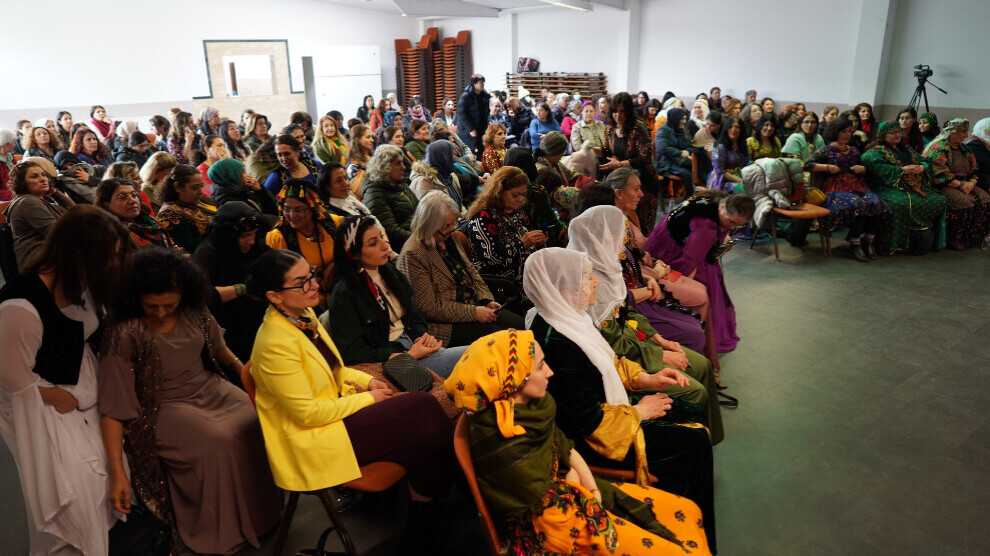YJK-E holds fifth congress in Darmstadt
The Kurdish women's organization YJK-E discussed the current political situation and its own work at its fifth congress in Darmstadt.
The Kurdish women's organization YJK-E discussed the current political situation and its own work at its fifth congress in Darmstadt.

The Kurdish Women's Union in Germany (YJK-E) held its fifth congress in Darmstadt on Saturday. Delegates from women's assemblies, communes and organizing committees from all over Germany attended the congress. The event began with a minute's silence, after which the chair was elected and the activity report for the past year was presented. A video compilation of activities as part of the campaign “Freedom for Öcalan and a political solution to the Kurdish question” was also shown.
In the subsequent discussion about the current political situation, Medya Botan, a representative of the Kurdish Women's Movement in Europe (TJK-E), pointed to the developments in the Middle East and said that the old status quo of power relations had collapsed and new structures were emerging: “The women's struggle plays a decisive role in the reorganization of the region: The decisive factor is no longer the nation states, but the peoples. While great changes are taking place in the Middle East, we women are facing great danger. The regimes are changing, but the mindset of the new rulers is the same and even more reactionary. The Turkish state is attacking Kurdish gains everywhere. All its efforts are geared towards destroying our gains.”
Medya Botan remarked that the renewed talks with Abdullah Öcalan on a solution to the Kurdish question have met with a great response. “We need to organize ourselves even better and step up our fight. If we women fulfill our role, there could be great developments this year.”
In the debate on the organizational structure of the women's federation, participants criticized the fact that the confederal system is still based on a vertical model rather than a horizontal organization. In evaluating the past year, participants emphasized that the model that should have been developed at the local level to empower women at the grassroots remained mired in a centralized structure. The consensus that emerged from the discussion was that more women's communes needed to be established in neighborhoods and areas so that the organizing mechanism could reach a broad mass of people. Furthermore, it was stated that establishing women's councils without first forming local communes would make the work inefficient, and it was decided to prioritize work in communes.
The congress ended with music and the slogans “Bîjî Serok Apo” (Long Live Leader Öcalan) and “Jin Jiyan Azadî” (Woman, Life, Freedom).